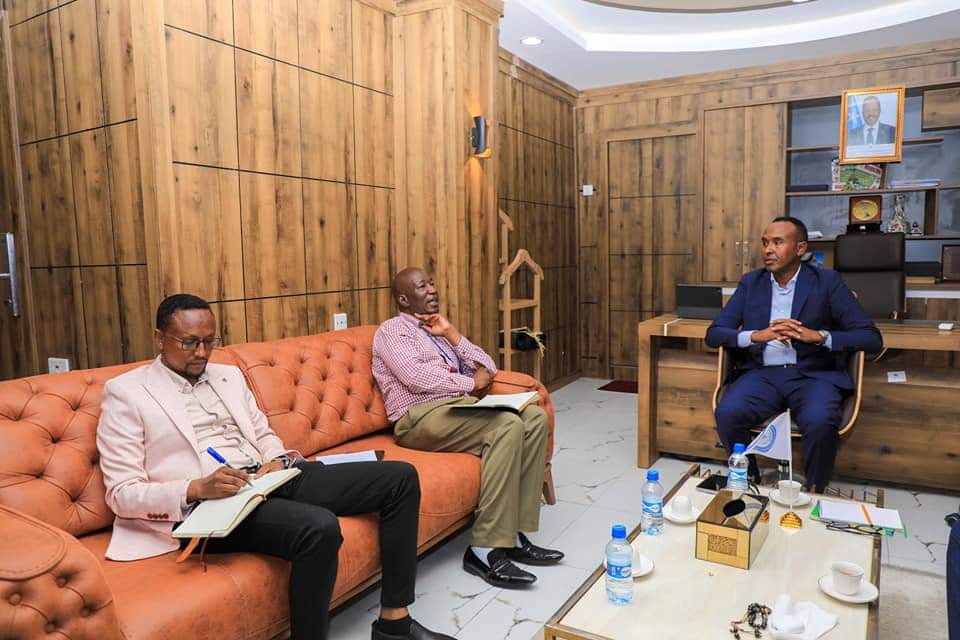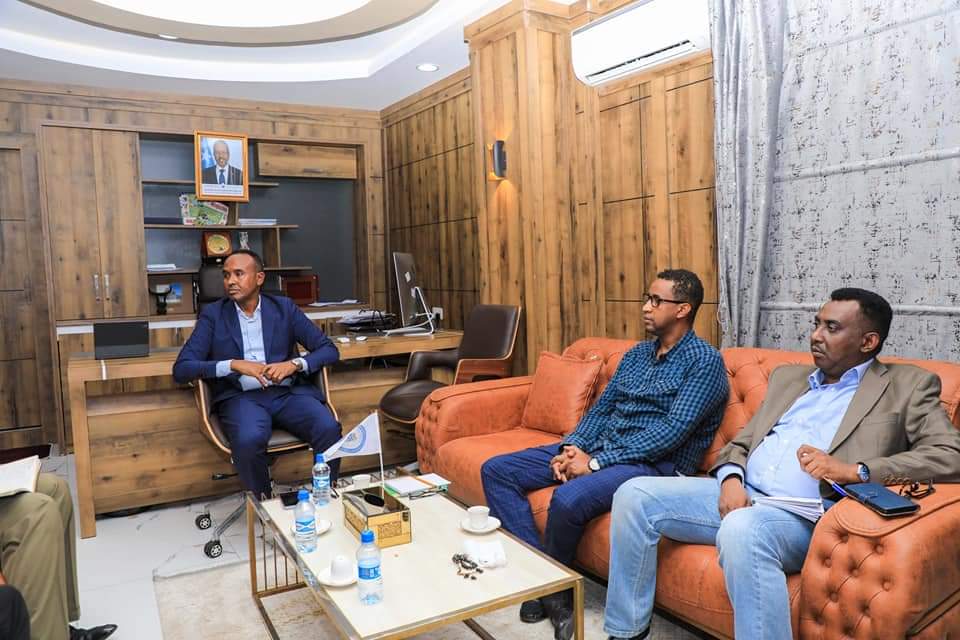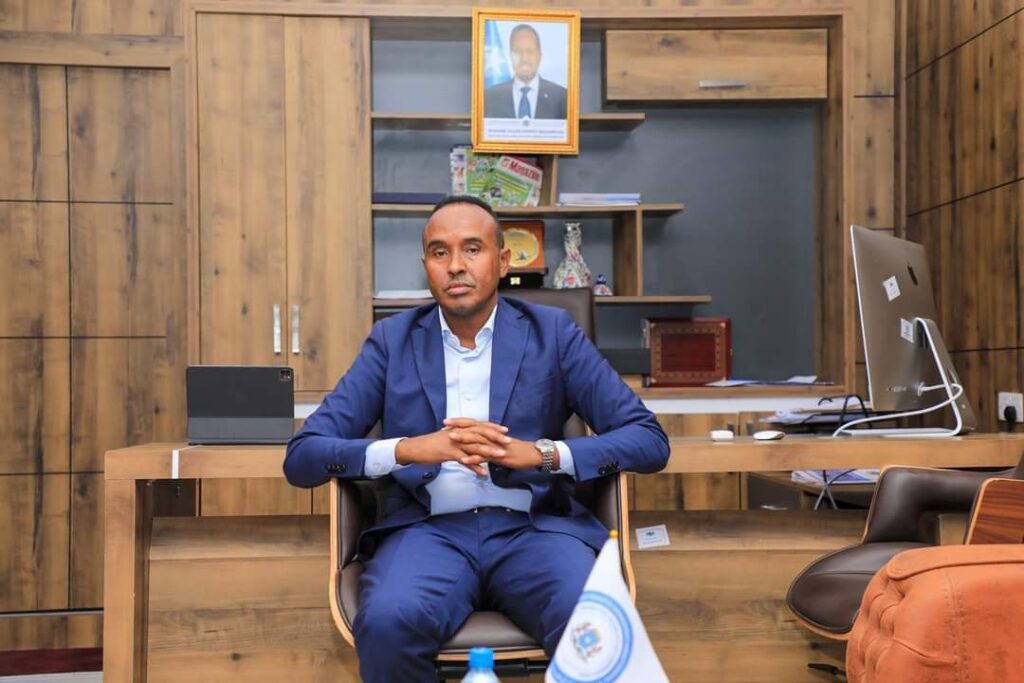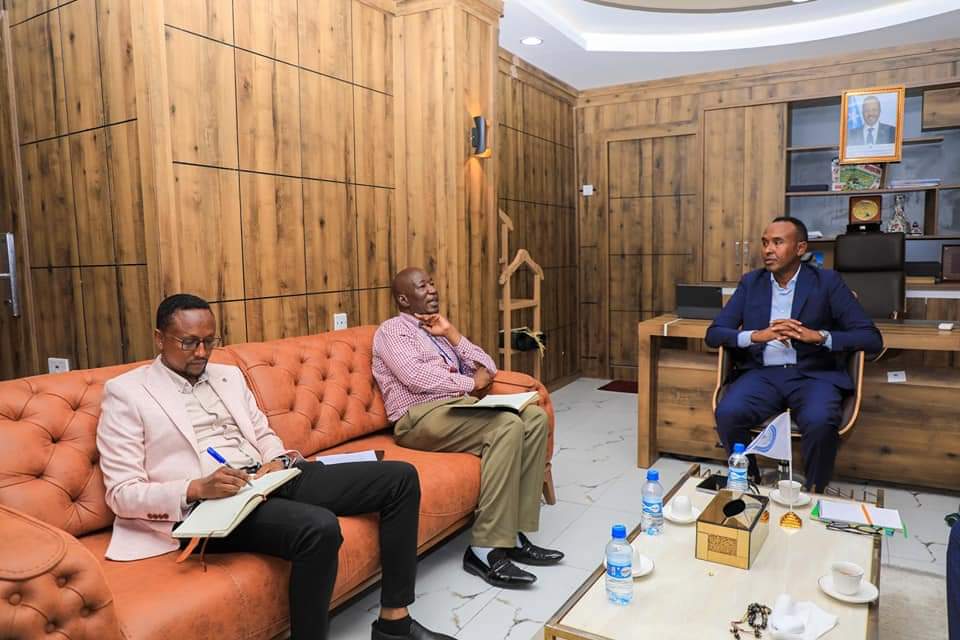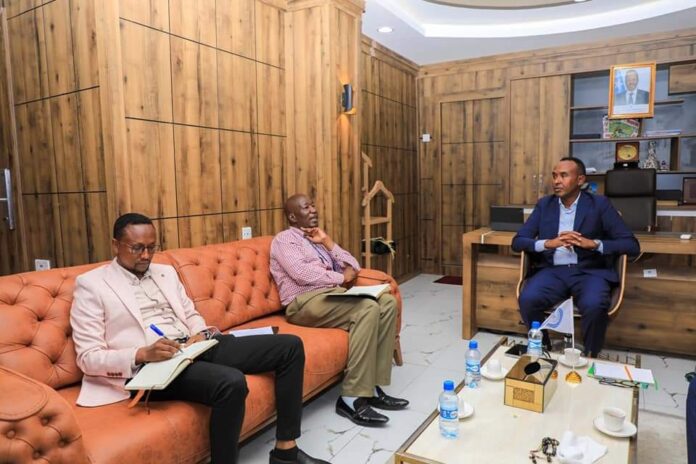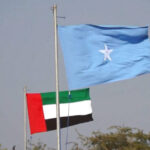MOGADISHU, Somalia – In a significant development for Somalia’s humanitarian efforts, the Commissioner of the Somali National Disaster Management Agency (SODMA), Mahamuud Moallim, held a meeting with the head of the United Nations Office for the Coordination of Humanitarian Affairs in Somalia (OCHA).
The meeting took place at SoDMA headquarters in Mogadishu, focusing on several key issues aimed at enhancing humanitarian response and disaster management in the country.
The discussions centered on the progress of organizing the Humanitarian Country Forum, which is a crucial platform for coordinating humanitarian response efforts. Additionally, the meeting addressed the critical issue of preventing aid diversion, ensuring that resources reach the intended beneficiaries.
The leaders also discussed long-term strategic plans for disaster management, emphasizing the need for sustainable solutions to mitigate the impact of natural disasters and complex emergencies.
One of the main topics of discussion was the continuation of cash assistance programs for displaced individuals. The officials explored ways to sustain these programs, pending the resolution of the program, to ensure that the most vulnerable populations receive the support they need.
The OCHA head in Somalia commended SODMA and Commissioner Moalim for their incredible work and efforts in helping vulnerable communities across the country. He pledged OCHA’s unwavering commitment to coordinating humanitarian response efforts during emergencies, such as natural disasters and complex emergencies.
This meeting comes as Somalia faces multiple challenges, including the impact of climate change, with Cyclone Laly causing significant damage in May 2024. The discussions reflect the ongoing efforts of SODMA and OCHA to address these challenges and strengthen humanitarian response capabilities in the country.
The collaboration between SODMA and OCHA is vital for Somalia’s disaster management and humanitarian response, as it brings together the resources and expertise of both organizations to better serve the needs of the Somali people.
As the country continues to face various challenges, these efforts will play a crucial role in ensuring the well-being of its population and fostering resilience in the face of adversity.
